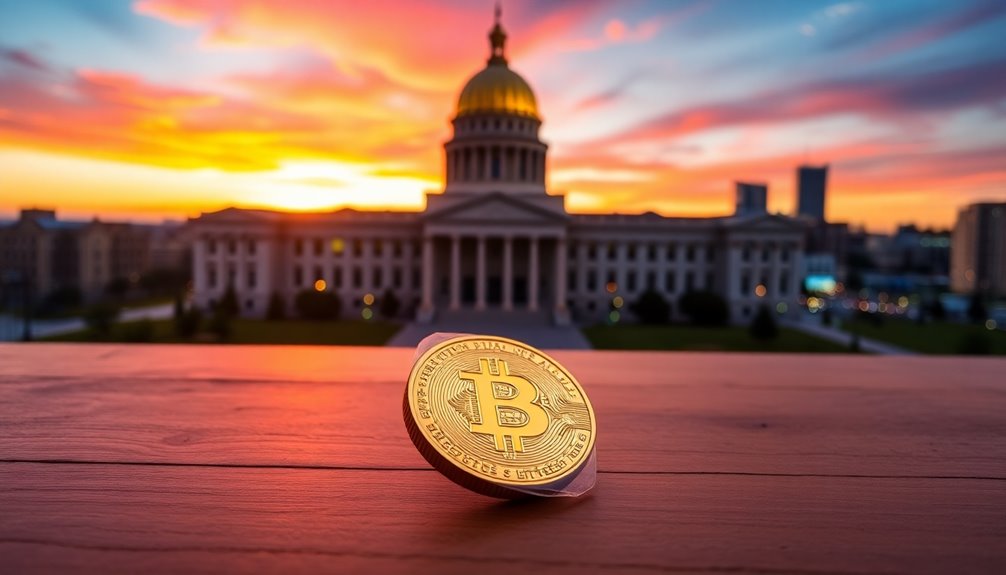You might find it intriguing that the Texas government is considering Bitcoin as a treasury asset. This potential shift could reshape financial strategies, especially in uncertain economic times. By integrating cryptocurrency into its balance sheet, Texas is positioning itself as a leader in a rapidly changing financial landscape. But what implications could this have for the state's fiscal health and broader institutional adoption of crypto? The answer might surprise you.

In today's financial landscape, Bitcoin is emerging as a compelling treasury asset for companies looking to optimize their cash reserves. This shift stems from a growing recognition that traditional cash reserves may not be enough to mitigate risks or generate adequate returns. By considering Bitcoin, you're not just holding an asset; you're potentially enriching your company's balance sheet with a strategic choice that can enhance liquidity and offer more stability in volatile markets.
Historically, Bitcoin has evolved from a speculative asset to a recognized store of value. Companies like MicroStrategy have led the way, demonstrating that Bitcoin can be a viable treasury asset. Their bold moves have influenced numerous organizations to reconsider their liquidity strategies in light of Bitcoin's potential for long-term appreciation. Furthermore, Bitcoin's hard cap of 21 million coins ensures its scarcity, reinforcing its attractiveness as a treasury asset.
With its fixed supply of 21 million coins, Bitcoin presents a unique opportunity for long-term price increases, especially following halving events. Its low correlation with traditional assets also makes it an attractive diversification tool, helping to spread risk across your portfolio.
Moreover, Bitcoin is increasingly viewed as a hedge against inflation. In a world where currency values can fluctuate dramatically, holding Bitcoin could provide a safeguard for your company's financial health. Think of it as "digital gold," a modern alternative that maintains value when traditional currencies waver. This perspective not only enhances financial resilience but could also position your company favorably in the eyes of investors looking for innovative treasury strategies.
However, the journey isn't without challenges. Bitcoin's classification as an intangible asset under U.S. GAAP complicates accounting practices. You'll have to navigate the complexities of impairment losses and market fluctuations, which can impact your financial statements.
Additionally, the volatility of Bitcoin's price may pose risks to your balance sheet stability, making it crucial to approach this asset with a well-structured strategy. Regulatory uncertainty can also be a deterrent. The lack of clear guidelines for holding cryptocurrencies as treasury assets means you'll need to stay informed and adaptable.
Managing Bitcoin requires specialized infrastructure and expertise, which adds an operational layer to consider. As you weigh the benefits against the challenges, you'll find that the trend of institutional adoption is growing. Companies worldwide are exploring Bitcoin, reflecting a broader shift in financial strategies that could redefine treasury management in the years to come.










